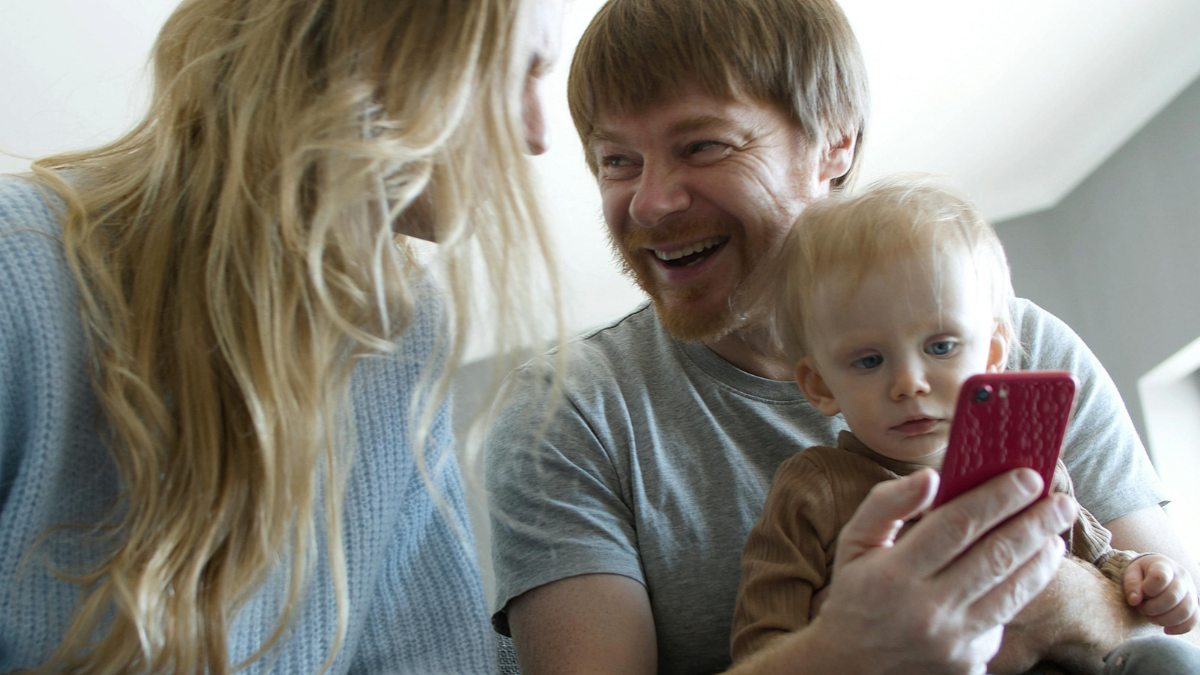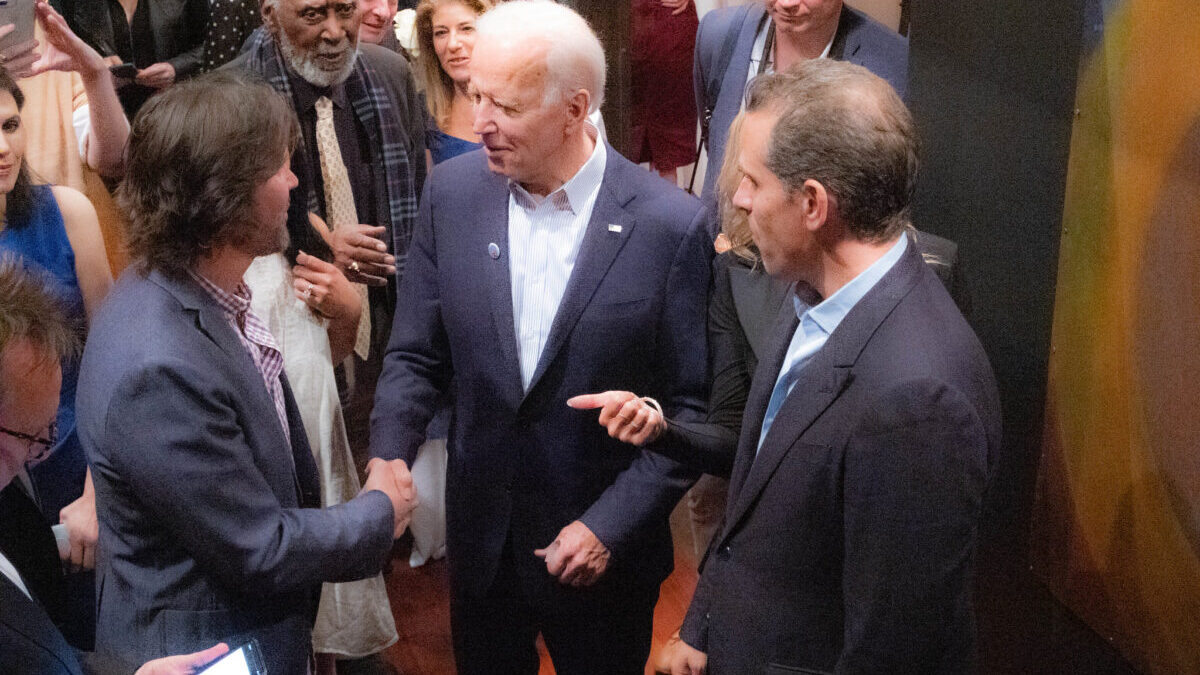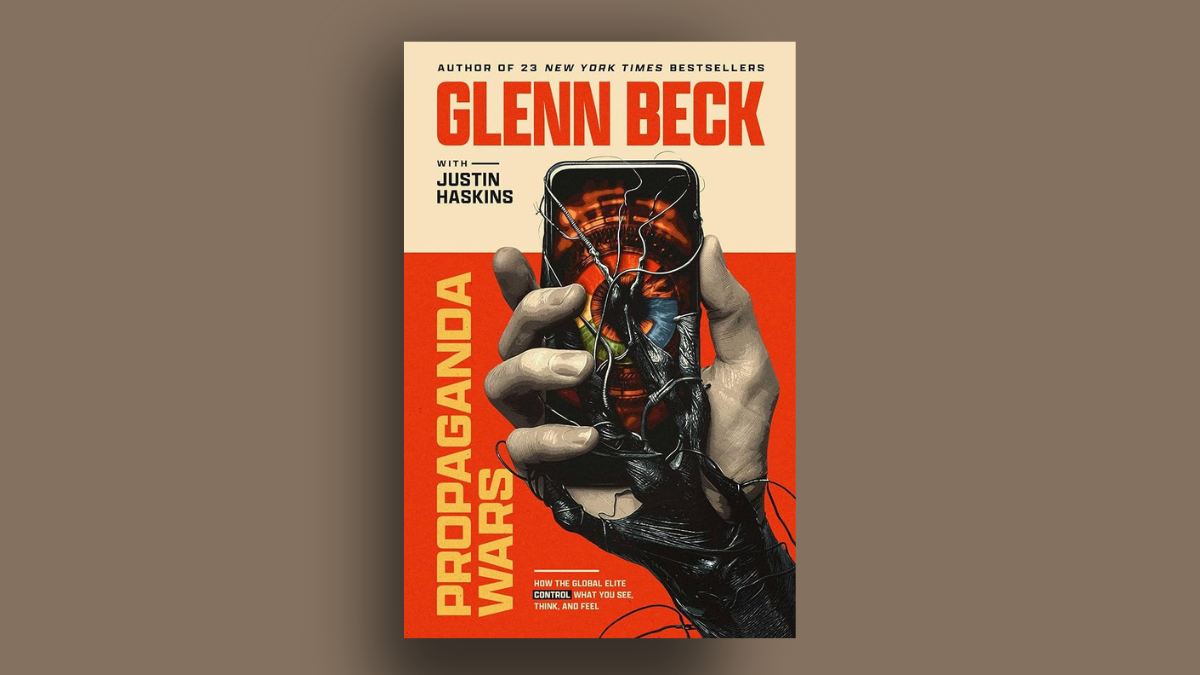
It’s hard to talk about mothers without getting maudlin. When the therapist says “mother,” we start thinking of warm cookies, hot soup, and tender bedtime moments. Birthday parties with cake and balloons. Kisses and Band-Aids for when we fall down. The Motherhood Montage signifies nothing less than lifelong, unconditional love combined with attentive, day-in-day-out personal service from infancy through established adulthood. No pressure, moms.
Remember When Motherhood Was Beautifully Cliché?
It’s hard sometimes to celebrate the wonderfully ordinary. In childhood, I remember my mother getting irritated each year by the local paper’s coverage of Mother’s Day. They always felt a need to find a “non-traditional” maternal figure to celebrate. Each May we got bright, happy features on unwed Murphy-Brown-type professionals who were doing it on their own, or on the heroic, childless woman who had volunteered hundreds of hours to the Girl Scouts, the “daughters she never had.” We apparently weren’t permitted to celebrate women who just got married, conceived and bore tiny new humans, and then raised them to adulthood. How boring and plebeian was that?
I fully understood my mom’s irritation. But I also sympathized with the local features editor. How many stories can you run on lullabies and apple pie? Motherhood is a minefield of clichés precisely because its importance is simply too obvious. For most of us, the goodness of mom is one of the first truths we ever grasp. We take our mothers for granted, just like sunshine and smiles and warm, cozy beds. As with those things, it’s hard to articulate their importance without sounding like a grinning, sentimental idiot.
Funny thing, though. In today’s world, it’s becoming audacious (even offensive!) to suggest that a child should have a mother. Another Mother’s Day is upon us, and the brunches will go on as usual, but a glance through your news feed will tell a different story: motherhood is besieged on a broader cultural level.
Consider, for example, this recent piece by Joy Pullmann on “full-service schools,” a fresh, new growing-up alternative to families. “Marriage equality” is poised to steamroll its way into every corner of the nation, carrying with it the new orthodoxy that kids don’t really need their natural parents. Meanwhile, surrogacy (fueled to a great extent by the desire of gay couples to procure children to raise) continues its advance into the Western world.
Amazingly, it has become necessary to ask: how big of a deal is this “motherhood” thing?
Motherhood Is Fundamental to Humanity
Contrary to what your first-grade teacher may have told you, there are such things as stupid questions. “Do moms matter?” is one of them. It’s the sort of ridiculous query that actually should leave us spluttering for an adequate response.
Stupid questions aren’t always easy to answer. Sometimes the most fundamental things are hardest to explain, precisely because they are fundamental. Academic philosophers can spend centuries debating whether they might really be brains in vats. (In effect, they’ve already done this.) But no sensible person lets his life get bogged down with those kinds of question. By a similar token, it can be difficult to articulate exactly why mothers matter. We find ourselves babbling about Band-Aids and oatmeal cookies, as though those couldn’t be supplied by a social worker or a school nurse. Nevertheless, reasonable people do not dismiss the deep intuition that yes, mothers constitute a unique and vitally important part of a child’s moral universe.
In a way, maternity is best appreciated through the small (but innumerable) services that mothers supply every day without fanfare. At the same time, a mother’s contribution transcends the particularities of a given household routine. It transcends, as well, any particular ideas we might have about the talents or temperament of particular mothers. Some women struggle with this if they are not by nature emotionally demonstrative, or if their interests and talents don’t run in a particularly domestic vein. I had a slightly rocky transition to motherhood, because my actual personality and interests didn’t quite match my internal picture of what a mother should be. I had a strange idea that pregnancy and birth would transform me into the sort of person who preferred baby-swaddling to philosophy, and who found it positively delightful to devote my afternoons to dusting and organizing curios.
That didn’t happen. But, over time, I realized two things. First, good parenting begins with a willingness to do the things your children really need. This needn’t always fit harmoniously with your own preferences and interests. Second, the natural bonds between mothers and children run far deeper than we can immediately appreciate. Persevere in the small stuff and you’ll find them—or, rather, they’ll find you. A child’s need for mothering is not subtle. Over time, all types of women can grow into the maternal role in a way that suits their own temperament. It’s easier for some than others. But to your kids, you are hearth and home and shade and shelter, simply because you are mom. The connection just is. Your own doubts and insecurities have nothing to do with it.
Of course, the day-to-day of mothering involves plenty of unglamorous work, and it’s absolutely possible to let your kids down through mistreatment or neglect. Nevertheless, the most unique contribution of a mother is, in some sense, just to be. To be a totally-unquestioned source of love and support. To be the “north” of the child’s developing moral compass. To be the anchor that makes him feel he has a natural place in this swirling, shifting, ever-changing world.
All of us realize at some early point that we’re not really up to the job. That, once again, is irrelevant. It’s the sort of role you fill because it is yours, not because you ever claimed to be qualified.
Mothers Are Home
Progressives scoff at this kind of talk. They are mortally offended by the idea that motherhood might be more than a list of specific functions (ideally performed in the appropriate emotional state), and they try to derail such arguments with “limit questions”: are you saying that adoptive parents can’t raise moral children? That a child who loses his mother has no possible chance at future happiness?
This is just another way of dissembling. A motherless child is a tragedy; until the present day, almost all humans everywhere have recognized this basic truth. It can happen, however, that tragedy sets the stage for a beautiful kind of rebirth, such as we sometimes see in adoptive families, which take something broken and piece it into a new whole.
The preciousness of that narrative, however, is always predicated on a recognition of the tragedy that preceded it. No reasonable adoptive parent denies a child the right to grieve and come to terms with the difficult circumstances that preceded the adoption. That’s not a mark of ingratitude, or a rejection of the adoptive parent’s love. It’s just a natural consequence of a fracturing of the natural order, which is the only appropriate way to understand the separation of a young child from his biological mother.
If we dismiss biological motherhood as a merely contingent relationship, we fundamentally misunderstand what it is to be human. We are not disembodied spirits that drift through the world on quest for enlightened self-actualization. We are physical, emotional and spiritual beings, and it’s mothers above all who draw these threads together into a cohesive whole.
Mothers sustain us equally with their bodies, their personal love, and their commitment to our individual well-being; importantly, all of those attentions precede any independent evaluation of our particular worth. How, most fundamentally, does a child know that he is more than a beast or a machine? He knows because he came from a human mother. And she loves him.
It’s interesting to note, in these benighted times, that proponents of synthetic family do realize the necessity of dissecting organic relationships. That’s why, in the world of third-party reproduction, gestational surrogacy (wherein a woman can sign a legally-binding contract to carry a genetically-unrelated fetus for money) was hailed as an important breakthrough. If we desire the freedom to assign children to unrelated guardians in accordance with adult relationship preferences, it helps if we can thoroughly trample the trail of natural attachment beforehand.
By teasing apart the genetic, gestational, and marital ties that should naturally coincide, we can create a whole set of children who are displaced by design. That makes things easier on everyone when the state backs a man’s claim to invade the maternity ward and tear a newborn from the arms of the woman who carried and bore him, on the argument that the child has been legally bought and paid for. (This, for those who weren’t aware, is not just a dystopian fantasy. It’s already reality in some parts of the country.)
Revitalizing Mother’s Day
In a better, more responsible world, we really could take mothers for granted. Children would grow up with the untroubled assumption that mom would be there when they needed her. Occasional tragedies would arise, as they do in this world, but even then, there would be ample healthy, intact families on all sides, able to extend a loving hand. No one would need to explain why Mom was an essential part of a complete childhood.
We don’t live in that wonderful world. In our world, there are plenty of people who have no objection at all to creating a market for motherless children, all for the sake of fulfilling adult interests. The beauty of motherhood is no longer (alas!) securely cliché. This Mother’s Day, therefore, we should take a moment to reflect seriously on the thoroughly stupid question of why mothers matter. It’s a case we actually need to make.









